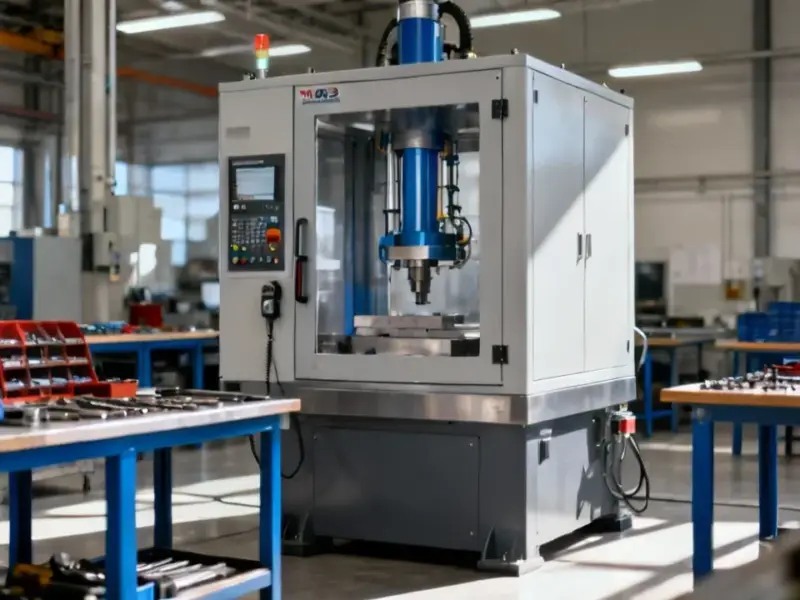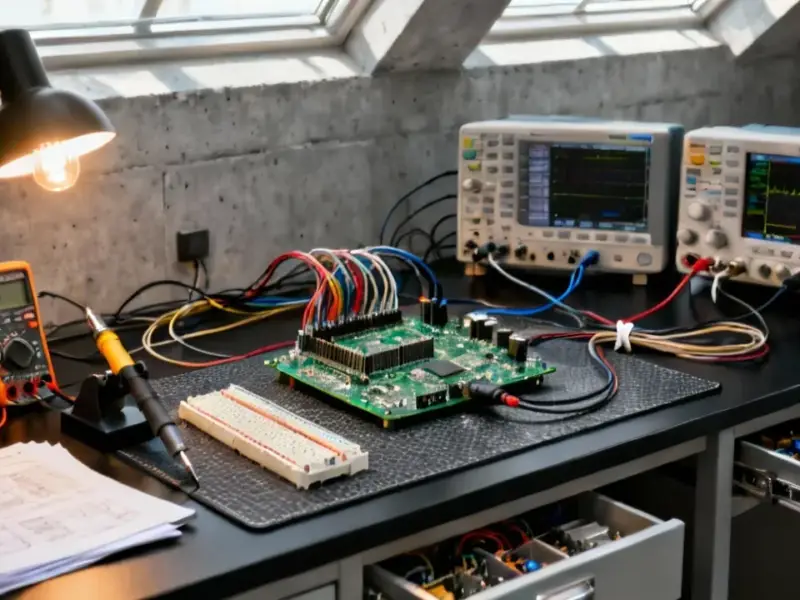According to Engineer Live, Faro has launched the HandyScan Black Elite Handheld 3D Scanner, marking the first major initiative since its alignment with Creaform under Ametek’s Ultra Precision Technologies Division. The metrology-grade scanner delivers 0.025mm accuracy and 0.1mm resolution within a 200 to 450mm working distance, capturing up to 1.3 million measurements per second using 22 blue laser lines. Weighing only 2.1 lb, the device features dynamic referencing for precision during movement and AI-driven target detection for complex surfaces. The scanner integrates with Faro’s existing CAM2 Software while supporting other major metrology platforms, targeting quality control, reverse engineering, and inspection applications across manufacturing environments. This launch signals a strategic evolution in Faro’s market positioning.
The Ametek Consolidation Play
This product launch represents far more than just another hardware release—it’s the first tangible evidence of Ametek’s strategic consolidation of its measurement technology portfolio. By positioning Faro alongside Creaform in the Ultra Precision Technologies Division, Ametek is creating a comprehensive offering that spans from traditional coordinate measuring machines to cutting-edge handheld scanning. The timing is strategic: industrial digitization and quality control demands are accelerating across aerospace, automotive, and energy sectors, creating a perfect storm of market opportunity. This move allows Ametek to capture customers across the entire measurement workflow spectrum, from shop floor to laboratory environments.
Disrupting the Portable Metrology Market
The HandyScan Black Elite represents a direct challenge to established players like Hexagon and Zeiss in the portable measurement space. By leveraging Creaform’s handheld scanning expertise while maintaining compatibility with Faro’s established software ecosystem, Faro creates a compelling value proposition for existing customers. The 0.025mm accuracy specification places it squarely in the high-end metrology category, while the 2.1 lb weight and suitcase portability address key ergonomic concerns that have limited adoption of previous generation scanners. This combination of precision and practicality could significantly expand the addressable market beyond traditional quality control departments to include field service and maintenance applications.
The Financial Calculus Behind the Launch
From a revenue perspective, this product serves multiple strategic purposes. First, it creates an upsell path for Faro’s existing installed base of traditional measurement customers who need portable solutions. Second, it positions Faro to compete for the growing budget allocation toward digital twin creation and Industry 4.0 initiatives. The scanner’s reverse engineering capabilities open new revenue streams in legacy part reproduction and digital inventory creation—markets that are expanding as manufacturers digitize their operations. Most importantly, by integrating with both Faro’s proprietary software and third-party platforms, the company avoids the vendor lock-in concerns that often limit adoption in enterprise environments.
The Creaform Synergy Test
The success of this product will serve as the first real test of the Creaform integration under the Ametek umbrella. While the technical specifications are impressive, the true business challenge lies in harmonizing sales channels, support structures, and development roadmaps across previously competing entities. Early indicators suggest Ametek is taking a pragmatic approach—maintaining brand identities while leveraging shared R&D and manufacturing resources. However, the market will be watching closely to see if the combined entity can deliver on the promise of integrated solutions rather than just bundled products. The scanner’s market reception will provide crucial data on whether the acquisition logic is translating into commercial success.
Broader Industry Impact
This launch signals a maturation of the handheld 3D scanning market, moving from specialized tools to mainstream industrial instruments. The inclusion of AI-driven features and automatic mesh enhancement represents a shift toward “smart” measurement devices that reduce operator skill requirements—a critical factor in addressing the manufacturing skills gap. As accuracy improves and prices become more accessible, we’re likely to see handheld scanners move beyond quality control into production monitoring and even predictive maintenance applications. Faro’s bet is that by establishing leadership in this transitional phase, they can capture significant market share as portable metrology becomes standard equipment rather than specialized tools.





I don’t think the title of your article matches the content lol. Just kidding, mainly because I had some doubts after reading the article.